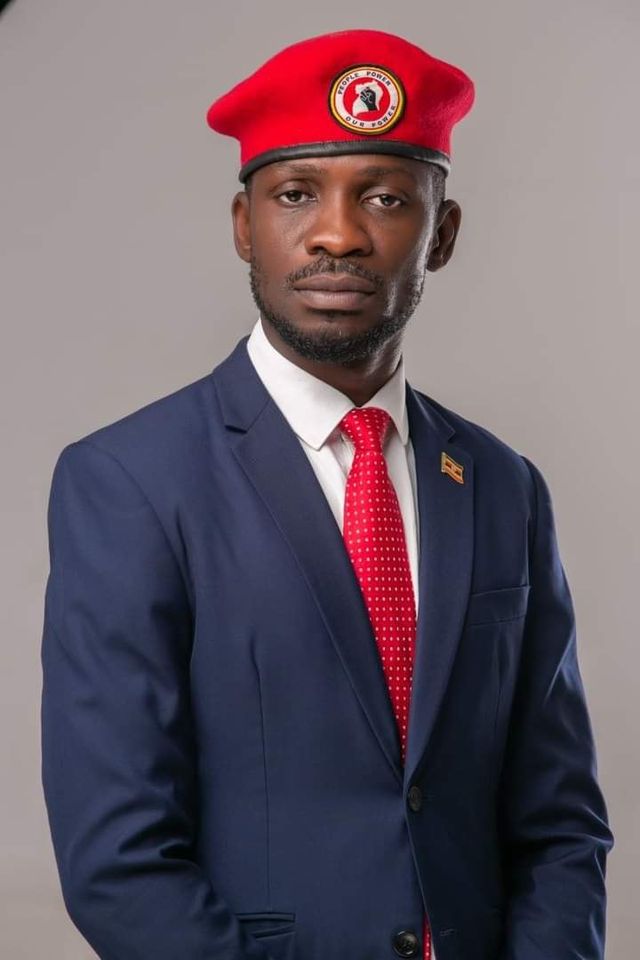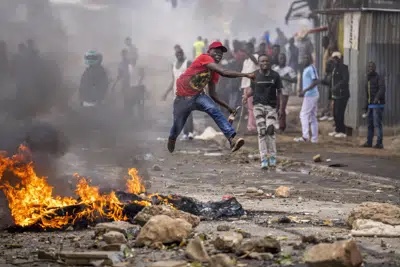

Africa
African protests met with savage repression
Protests called in Kenya, South Africa, Nigeria and Tunisia against high costs of living, corruption, authoritarianism, fraudulent elections and unemployment have been met with savage repression.
The regimes in four geopolitical and economic nodal points of the continent, with a combined population of 343 million, have launched mass arrests, teargassed protestors, arrested major opposition leaders, and killed at least two protestors.
The scale of the savage repression demonstrates that more is at stake than curbing the activities of capitalist opposition parties. The ruling elites are intent on supressing massive opposition within the working class to deplorable living conditions across the continent, intensified by the ruling classes response to the COVID-19 pandemic and the soaring of prices due to the ongoing US-NATO war against Russia in the Ukraine.
Kenya
In Kenya, the government of President William Ruto turned his electoral “bottom-up” economic model supposedly geared towards bringing down the cost of living, eradicating hunger, creating jobs into a top-down savage police crackdown.
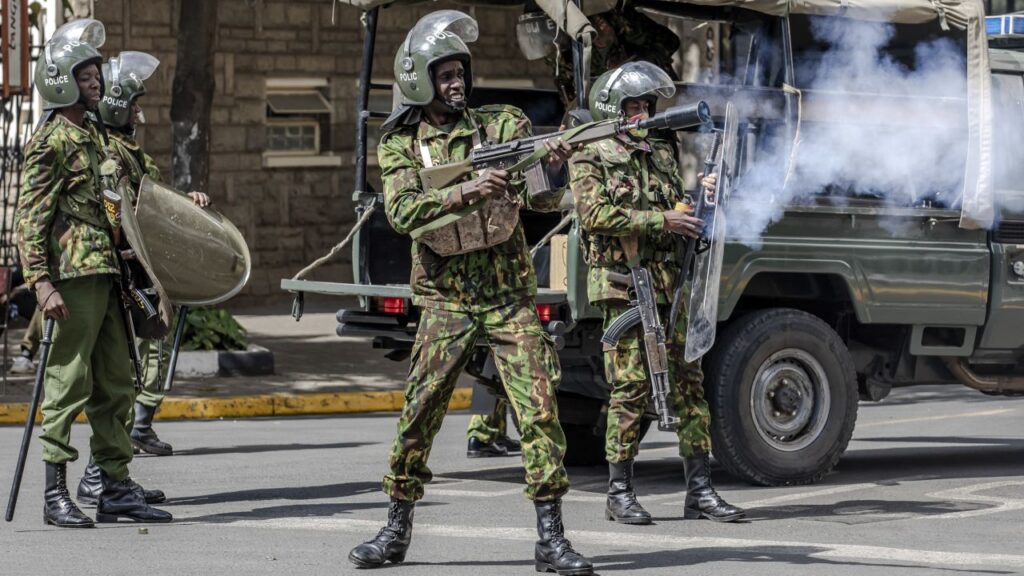
He outlawed the first mass protest under his rule called by billionaire opposition leader and former prime minister Raila Odinga of the Azimio la Umoja–One Kenya Coalition Party, ludicrously arguing that the demonstrations were filed too late for authorization. 5,000 heavily armed police offices and the notorious paramilitary, the General Service Unit (GSU) were deployed.
Nairobi was converted into a fortress. The city woke up to a mass police presence. Roads leading to key government buildings in the capital had been blocked and the president’s official residence, State House, sealed off.
Police teargassed hundreds of protestors that had been able to bypass police cordons in Nairobi’s Central Business District, from where Odinga had called for a march towards the president’s residence. At least four members of parliament and dozens of protestors were arrested, including National Assembly Minority Leader Opiyo Wandayi, Senator Stewart Madzayo and MPs Amina Mnyazi and Richard Chonga. Other lawmakers were teargassed.
“We came here peacefully but they tear gassed us,” Nairobi protestor Charles Odour told French news agency AFP. “They lie to us every day. Where is the cheap maize flour they promised? Where are the jobs for the youth they promised? All they do is hire their friends.”
Some of the fiercest clashes took place in Kibera, the largest urban slum in Africa, and one of Odinga’s strongholds. Police officers in full-riot gear fired teargas and used water cannon against hundreds of protesters, as they set tyres ablaze, blocked roads and chanted “Ruto must go,” some of whom were throwing rocks. One protestor was seriously injured after being shot by police. Some reports state he has died.
The chants were reminiscent of the demands of working people and rural masses in Sri Lanka in July last year: “Gota [Prime Minister Rajapaksa] has got to go!”
When Odinga emerged in midday from a Nairobi hotel to lead the march and to hold a press conference, his motorcade was fired on with tear gas and water cannon. Azimio spokesperson Makau Mutua said Odinga’s vehicle had been hit by a bullet. In a tweet, Mutua shared a photo of a shattered windscreen online.
Demonstrators were dispersed in other parts of the country, including Kisumu in western Kenya, the third-largest city and an Odinga stronghold. A third-year university student was shot dead.
Kenyans are struggling as prices for basic necessities soar and the value of the shilling has dropped sharply over the past year against the US dollar–3.5 million face starvation due to a prolonged drought in the north. Latest data from the Kenya National Bureau of Statistics shows that households spent 13.3 percent more on food compared to a year earlier. Food accounts for nearly a third of the shopping basket for Kenyan families.
South Africa
In South Africa, the African National Congress government deployed 18,000 police and 3,500 soldiers to supress a threatened “national shutdown” by the opposition Economic Freedom Fighters (EFF) against the electricity crisis, to call for President Cyril Ramaphosa to resign and for the high level of unemployment to be addressed.
“This is an attempt to overthrow the government. This is not a shutdown, but it’s anarchy,” KwaZulu-Natal Police Commissioner, Lieutenant-General Nhlanhla Mkhwanazi, said on Friday.
The day before the protest, in a 12-hour period that stretched over Sunday night and Monday morning, police arrested 87 people across the country.
Protests broke out in Braamfontein on Sunday night. Police used stun grenades to disperse the demonstration. In Cape Town during early hours of Monday morning, a group of around 100 people were dispersed when police fired gas canisters.
During the day, EFF organised protests in Sandton, Cape Town, Pretoria and across provinces. Under a heavy escort and with a police helicopter overhead, 2,000 protesters marched in the capital Pretoria to Ramaphosa’s official residence, passing the seat of government, the Union Buildings. In Sandton, over 30 protesters were arrested after they tried to block clothes retailer Woolworths. Groups varying in size from dozens to hundreds gathered in other parts of the country.
EEF leader Julius Malema recognised that the turnout was less than expected, blaming ANC Transport Minister Sindisiwe Chikunga for sabotaging the party’s plans to ferry protesters by bus to Pretoria. He told protesters that over 1 million rand (55,000 dollars) had been spent to hire buses to ferry EFF supporters to Tshwane, but bus contractors had withdrawn their services at the last minute.
With an unemployment rate of 33 percent, many have lost their income. Youth (aged 15-34 years) have an unemployment rate of 45.3 percent. Adding to workers’ fury, the regulatory authorities have allowed Eskom, the state-owned electricity company that generates that 90 percent of South Africa’s power to raise its prices by up to one third over the next two years as it faces insolvency. This comes as South Africa’s annual inflation rate is running at 6.9 percent in January, while food price inflation hit a 14-year high at 13.4 percent.
Nigeria
In Nigeria, protests are ongoing citing fraud during elections held in 28 states. Some states, like Anambra, Bayelsa, Edo, Ekiti, Imo, Kogi, Ondo, and Osun are conducting governorship elections off-cycle.
In Lafia, the Nasarawa State capital, protestors clashed with the police with one person allegedly killed while several others were injured. In Enugu State, protestors marched onto the streets of Independence Layout, Enugu, protesting the delayed announcement of the governorship election and stormed the Independent National Electoral Commission (INEC).
The Kano State government has imposed a dusk-to-dawn curfew. State Commissioner for Information and Internal Affairs Malam Muhammad Garba, threatened people to remain indoors as police “would not spare anyone or group bent on causing trouble”.
Tunisia
In Tunis, the capital, thousands of Tunisians rallied to protest President Kaïs Saïed’s rule, nearly a year after he dissolved parliament and assumed dictatorial rule last July. Over the past months, Saïed has arrested opposition politicians, trade union members, judges, a prominent businessman and the head of an independent radio station.
In a speech Saturday to commemorate the departure of French troops and Tunisia’s 1956 independence, he threatened to expel “all who want to undermine independence”.
Over the past weeks, the regime has instigated pogrom-like attacks against Black African migrants across Tunisia which started in early February and accelerated following Saïed racist speech February 21. The aim is to divert attention from the devastating effects of rising inflation and food shortages on living standards. In February, inflation reached 10.4 percent, up from 8.3 percent in 2022. Youth unemployment stands at 40 percent.
Saïed had said that “hordes of irregular migrants from Sub-Saharan Africa” had come to Tunisia, “with all the violence, crime, and unacceptable practices that entails”. This was part of a criminal plan designed to “change the demographic make-up” and turn Tunisia into “just another African country that doesn’t belong to the Arab and Islamic nations anymore”.
Africa
Bobiwine in year 3020 a defining topic in African books of history
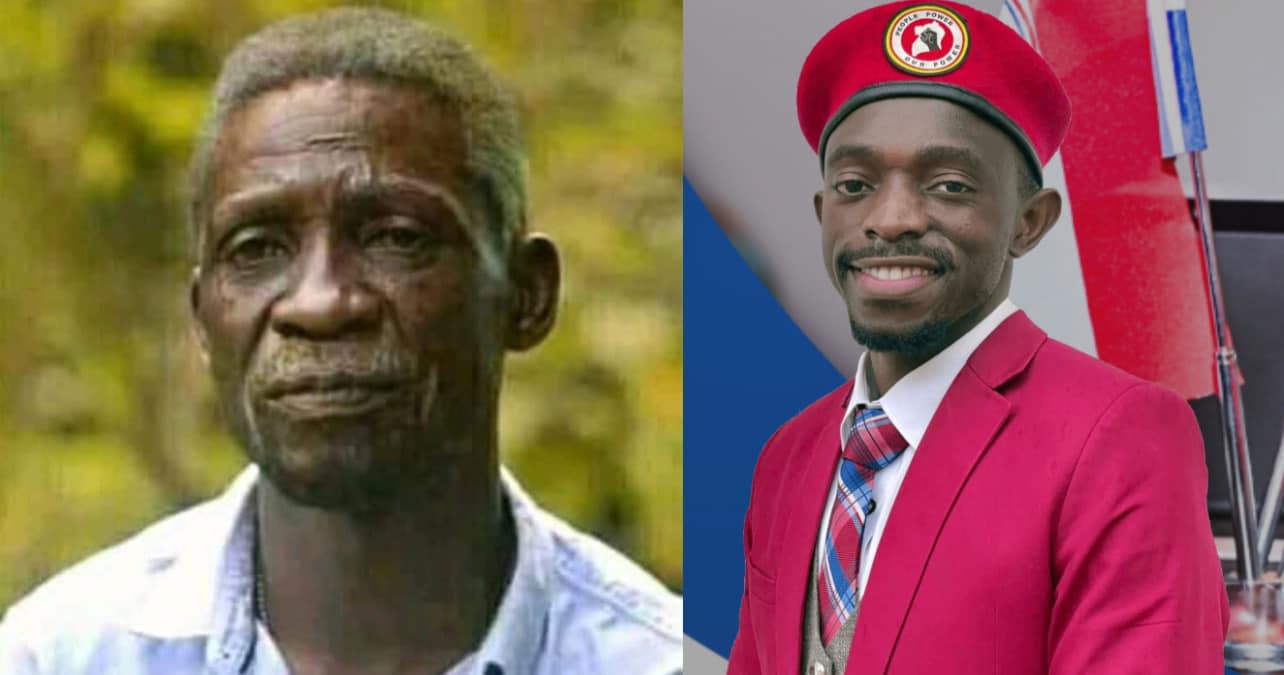
Reminder;
Believe it or not, by year 3020, “BOBI WINE AND PEOPLE POWER” will be a defining topic in African books of history.
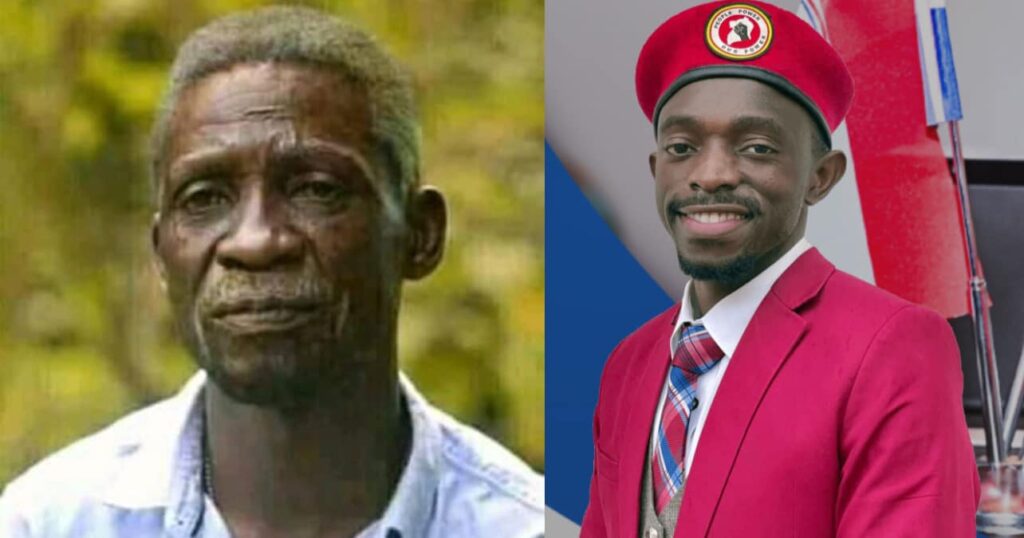
Our sons and daughters will have the privilege of reading about this brilliant, fearless, and patriotic young leader who flipped the script, sacrificed his celebrity lifestyle and took it upon himself to free Uganda from a long Serving dictator, M7 who had misruled Uganda for 40 years.
It will be both an inspiring and heartbreaking sad tale for our grand sons and daughters as they will be subjected to scripts that will feature the high Corruption rate , the Impunity, Unemployment,
nepotism, Military rule, land grabbing, endless Murders of innocent Ugandans, and so much more that existed before Bobi Wine’s leadership.
But as they read between the lines, they will shed tears of joy knowing that Robert Kyagulanyi Ssentamu, aka Bobi Wine, and the entire People Power movement eventually triumphed, transformed Uganda, set strong democratic precedents, and paved the way that leaders after them followed to steer the nation in the right direction, the nation our grand sons and daughters will be enjoying by that time.
By then, the People Power revolution will have swept and dismantled dictatorships across Africa, as African nations that were subjects of dictatorship gained confidence after seeing it done in Uganda. By this time, Uganda is now a developed country, the pearl of Africa again – in its true meaning, in all aspects of life social economic and political, Everything went back to normal, you cant believe we have ever had a dictator called Museveni. The days of dictatorship will feel like a distant, unimaginable past.
Statues of Bobi Wine, clad in full People Power combat gear and the iconic beret, stand tall in major cities. People come take photos, shoot films, and document history—without fear of teargas or repression. A free and democratic Uganda finally a reality.
Bwetukomawo, today is February 3, 2025.
The weight of this change rests on our shoulders, and the truth is no one is going to do it for us. If we want a free Uganda, we must rise as a generation, stand together, and take action.
This fight demands more than just hope, it requires courage, trust, discipline, and an unshakable resolve. The forces of oppression will test us as they have done countless tyms but we must stand firm, knowing that every sacrifice, every effort, brings us closer to victory.
And make no mistake, at the end of it all, we shall win. Uganda will be free, and history will remember this generation as the one that refused to kneel before tyranny.
The time is now. The struggle continues. Together, we shall overcome.
I remain,#JBMuwonge #PeoplePowerOurPower

Exclusive
Bobi Wine The People’s President Full Documentary
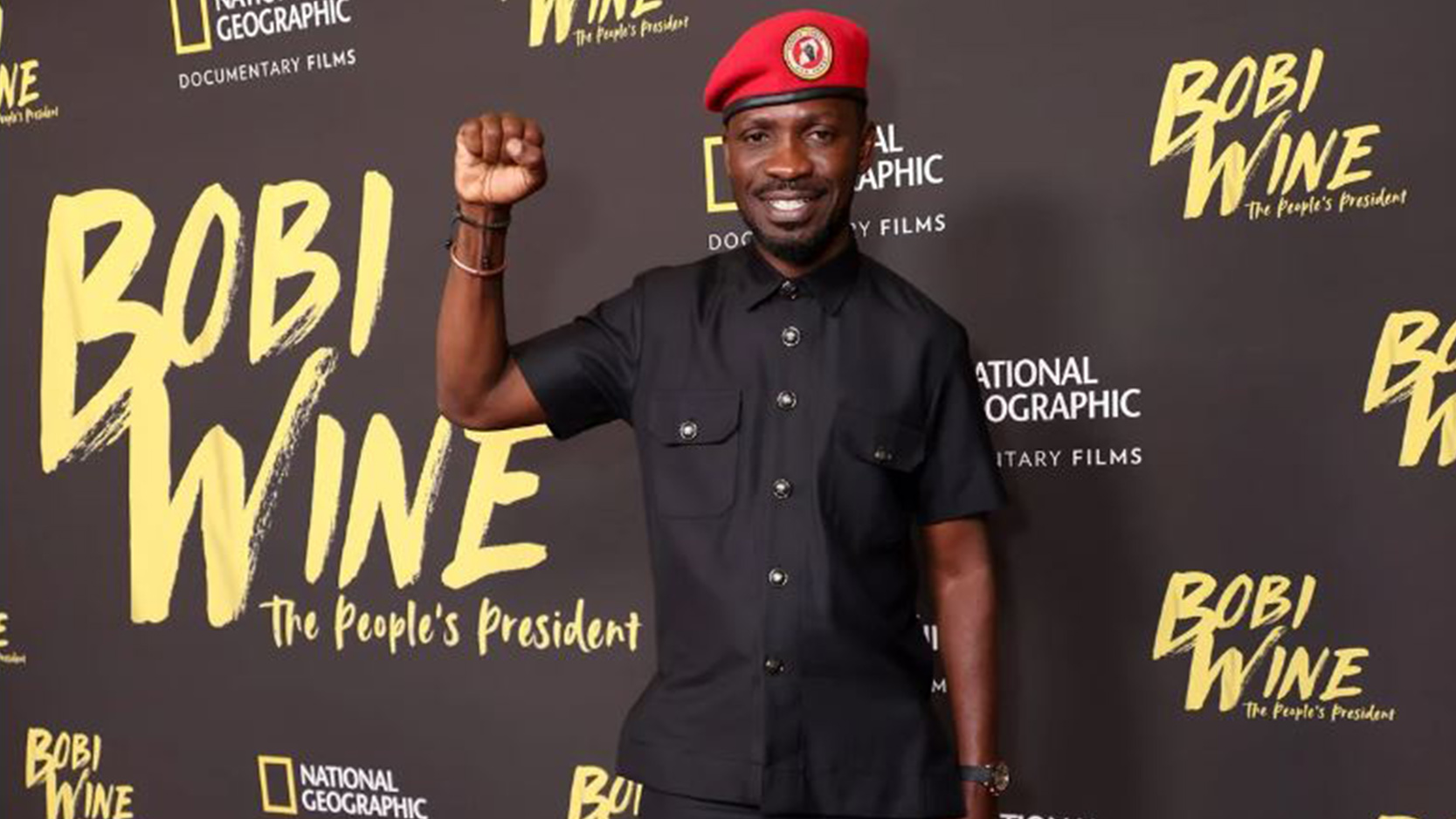
Briefly about Bobi wine the people’s president
Bobi Wine: The People’s President is a gripping documentary that chronicles the remarkable journey of Bobi Wine, a pop star-turned-politician, as he strives to dismantle Uganda’s brutal dictatorship under Museveni brutal rule. The film delves into the 2021 Ugandan presidential election, where Bobi Wine, alongside his wife Barbie, leads a courageous fight for freedom against President Museveni’s oppressive 35-year regime
In this powerful narrative, Bobi Wine’s activism and determination resonate as he rallies his people, challenging the status quo and advocating for change. The documentary sheds light on the intersection of music, politics, and human rights, making it a must-watch for those interested in social justice and the pursuit of democracy.
If you’re curious to explore this compelling story, you can find the full documentary on platforms like National Geographic and Disney+. It’s a testament to the indomitable spirit of those who dare to challenge oppressive systems and fight for a better future.
Here is the Full Documentary of Bobi wine the People’s President
Bobi Wine The People’s President
Born in the slums of Kampala, Bobi Wine, Ugandan opposition leader, former member of parliament, activist and national superstar musician, risks his life to fight the ruthless regime led by Yoweri Museveni. Museveni has been in power since 1986 and changed Uganda’s constitution to enable him to run for yet another five-year term. Running in the country’s 2021 presidential elections, Bobi Wine uses his music to denounce the dictatorial regime and support his life mission to defend the oppressed and the voiceless people of Uganda. In this fight, he must also take on the country’s police and military, which are not afraid to use violence and torture in a vain attempt to intimidate and silence him and his supporters.
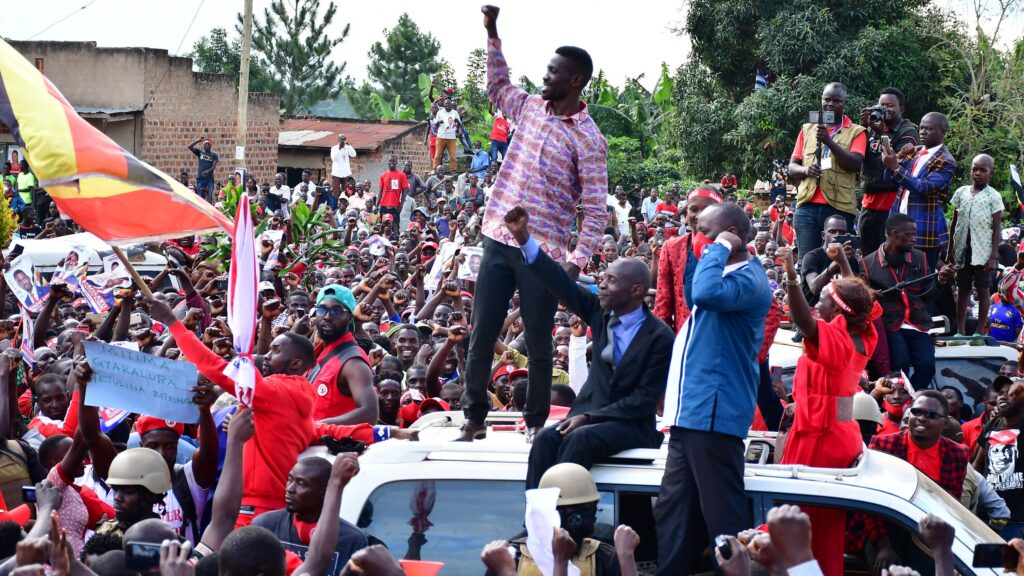
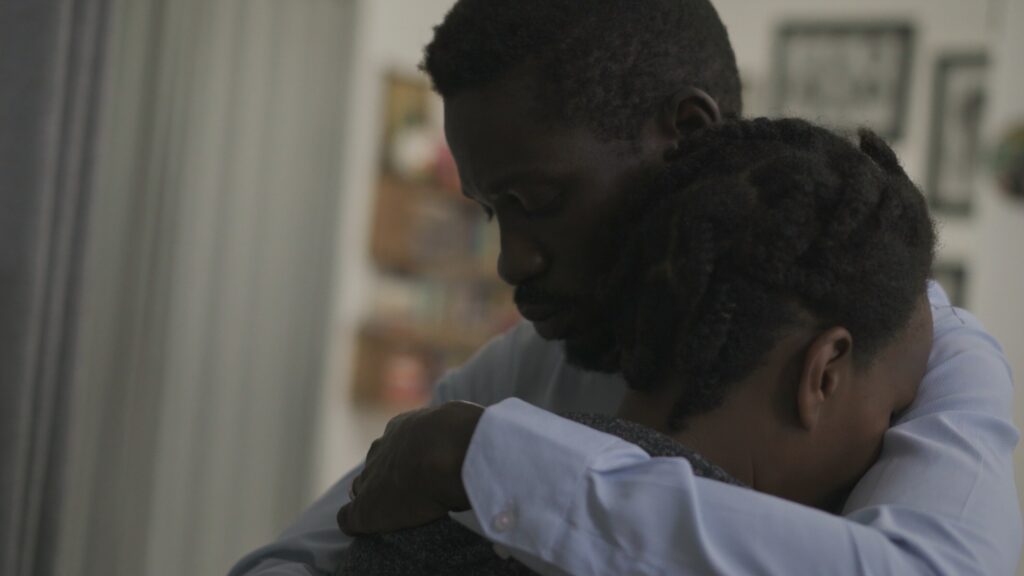
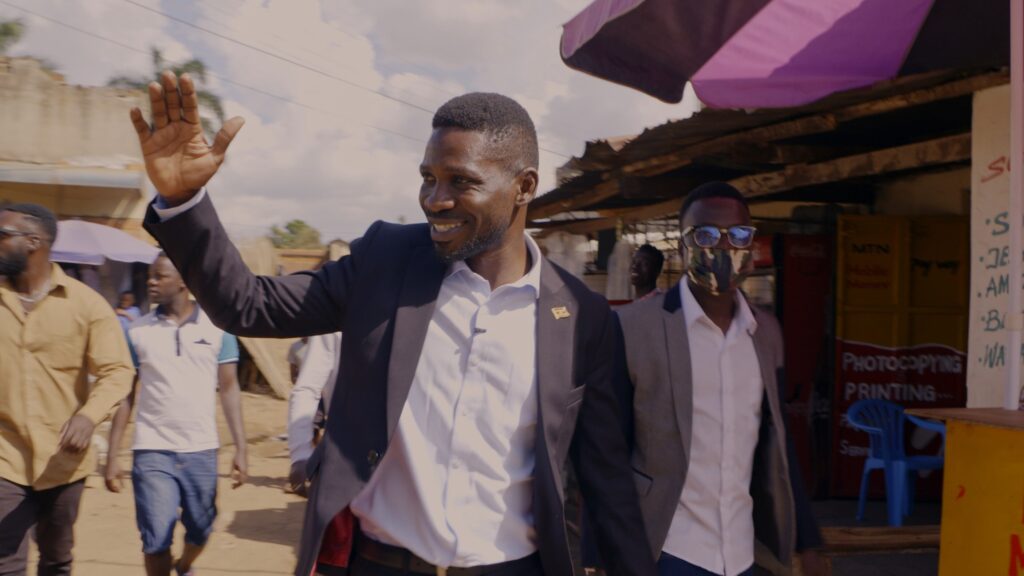
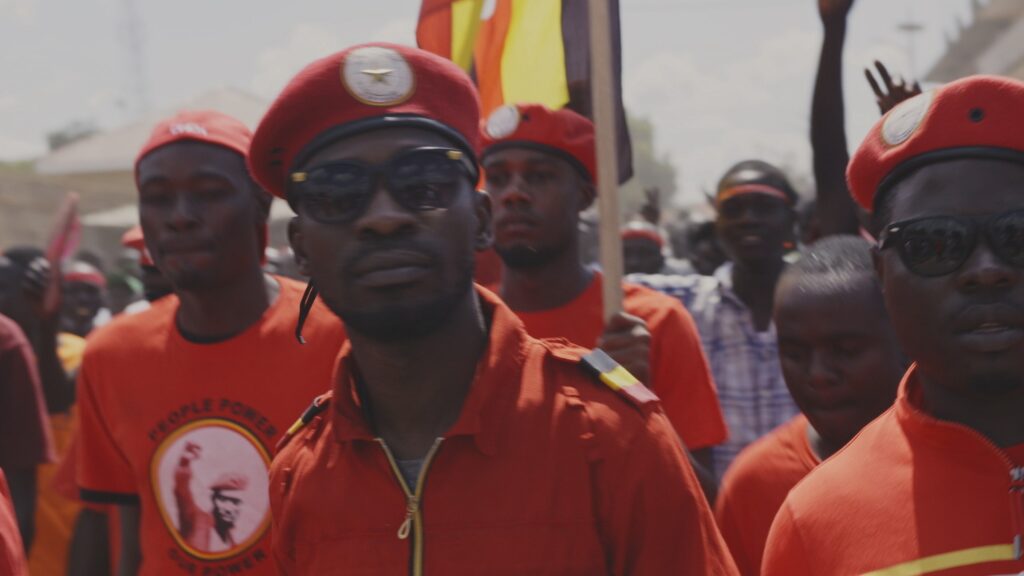
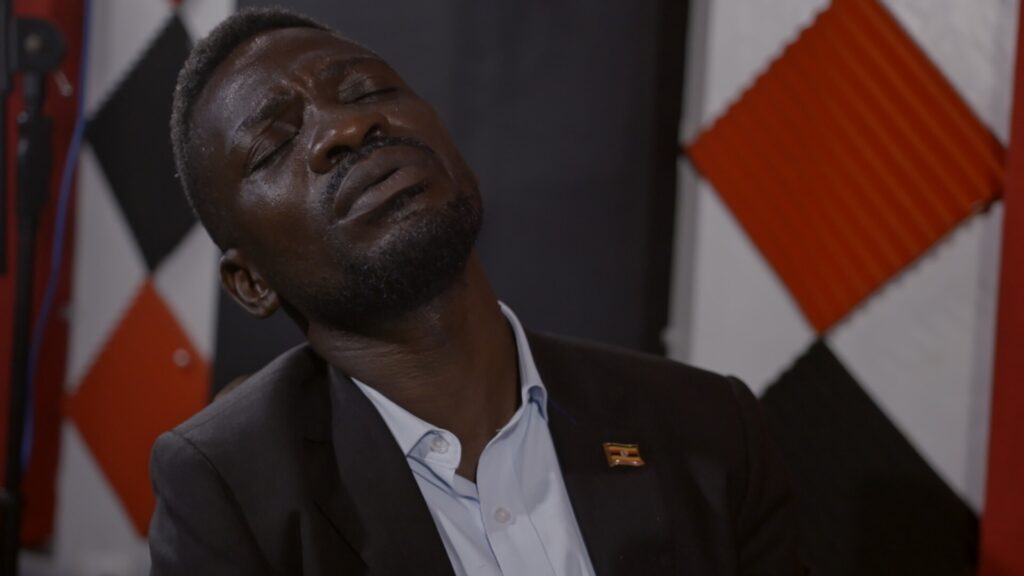
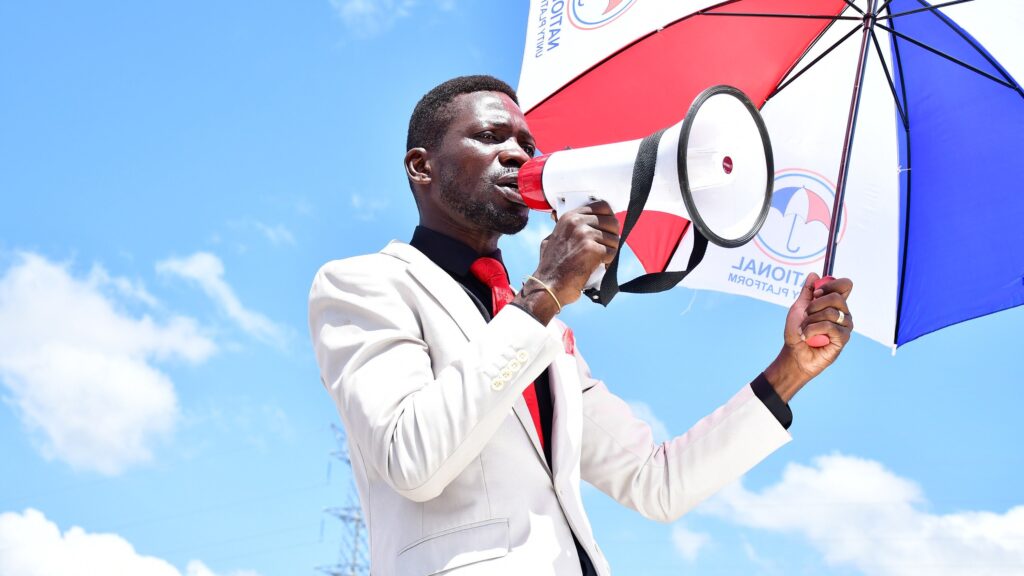
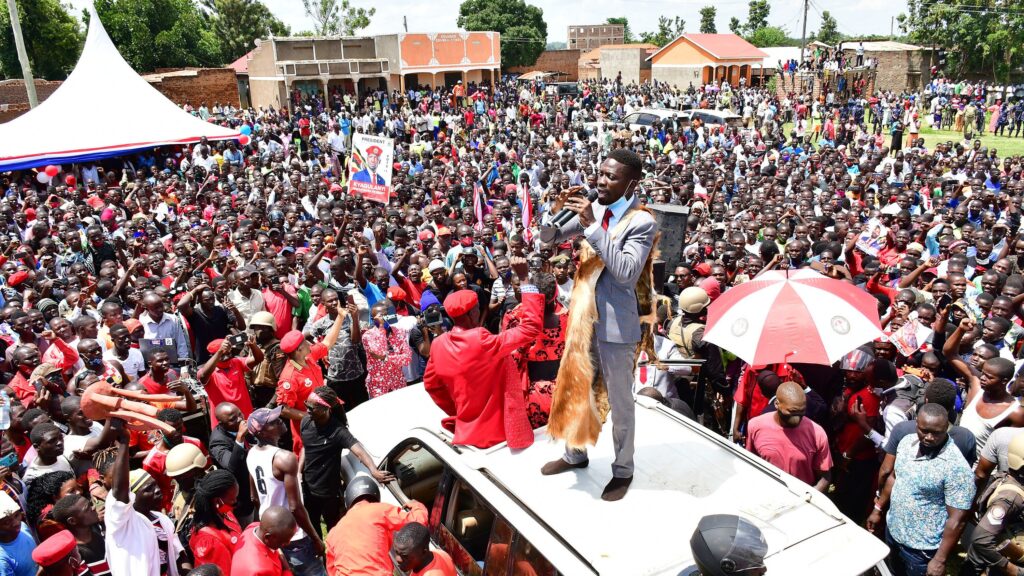
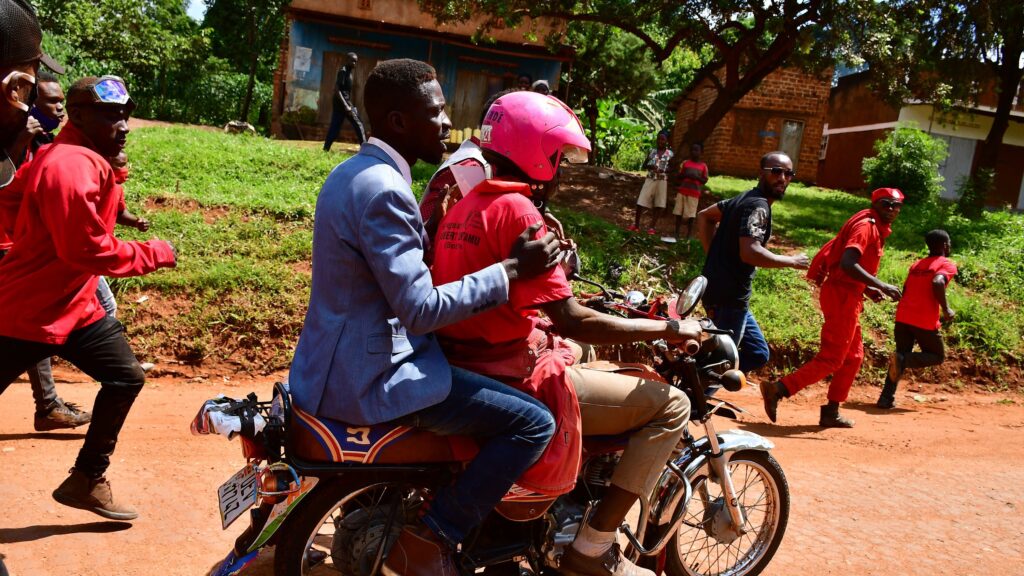
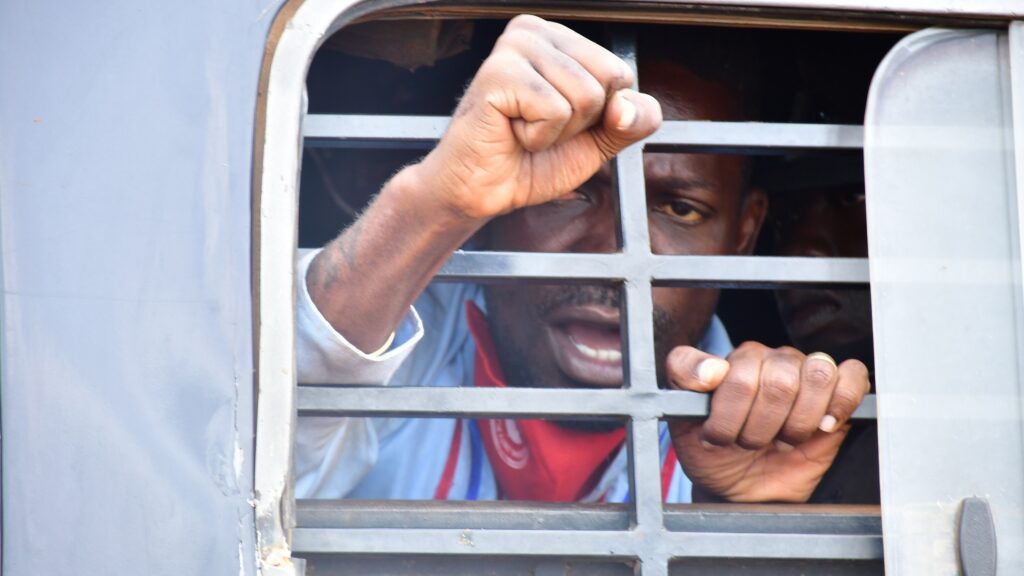
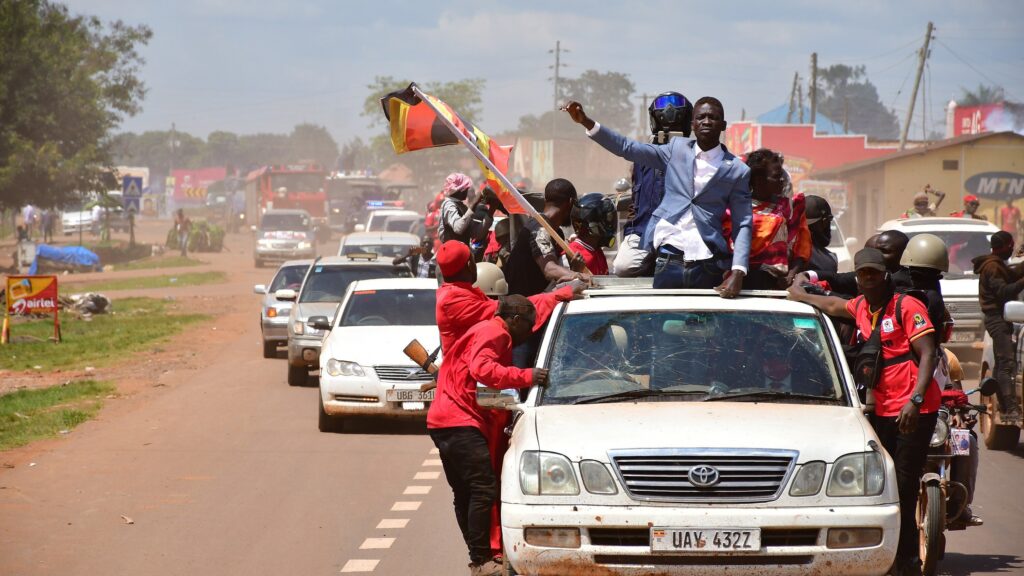
Bobi Wine The People’s President
Meet the Participants
BOBI WINE
PARTICIPANT
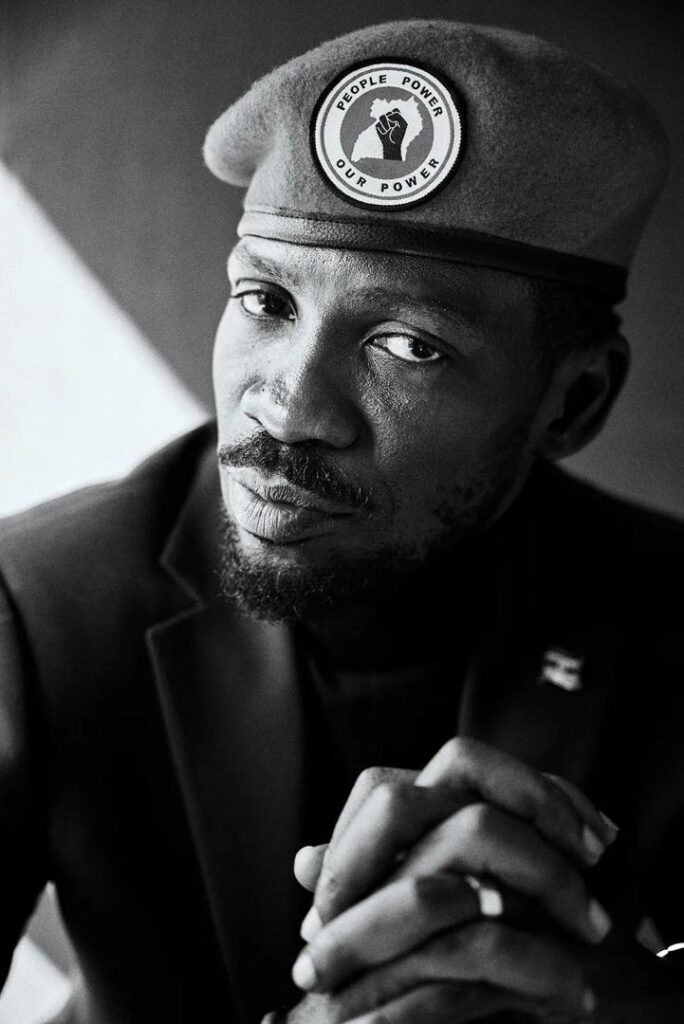
Robert Kyagulanyi Ssentamu, famously known as Bobi Wine, is a musician turned politician who is the current leader of the National Unity Platform (NUP) and the People Power Movement. Bobi was born in Mpigi District in Uganda on Feb. 12, 1982. He grew up in the Kamwokya slums in the northeast part of Kampala. His mother was a nurse, and his father was a veterinarian and farmer.
Bobi is a singer, musician, actor and activist. He has campaigned for hospital sanitization, malaria prevention, refugees’ rights and children’s education. His songs are known as peaceful protest and edutainment (a mix between education and entertainment), focusing on the struggles of Uganda’s underprivileged and low-income earners and calling upon young people to join politics and change their country’s destiny. He is married to Barbara Itungo Kyagulanyi, known as Barbie, with whom he has four children.
His characteristic enthusiasm for democratic discourse and the popularity he had earned from his prior artistic and philanthropic endeavors successfully endured his transition to politics. Bobi Wine continues to lead the NUP, the largest political opposition party in Uganda and has become the main opposition leader to President Museveni’s rule.
BARBARA “BARBIE” ITUNGO KYAGULANYI
PARTICIPANT

Barbara “Barbie” Itungo Kyagulanyi is an author, philanthropist and human rights activist.
Barbie’s 2012 book, “Golden Memories of a Village Belle,” gives insight into her early childhood experiences with village politics and local council elections, her African family unit, and the abject poverty that led to the early marriages of her childhood friends.
In 2013, Barbie founded Caring Hearts Uganda, a nongovernmental organization (NGO) that seeks to champion development projects in rural areas, prioritizing health care, maternity, education and sanitary programs. The NGO supports empowering leadership in girls through HIV/AIDS eradication, menstrual hygiene instruction, and continuing education, teaching traditional Ugandan values while encouraging girls to stay in school. In the community, the NGO has extended entrepreneurship skills to teen mothers for personal development and sustainability.
With a master’s degree in human rights law from the University of London, Barbie has taken on the mantle of demanding equity and equality for women in political spaces through the women’s wing of the National Unity Platform political party, which is led by her husband, Kyagulanyi Ssentamu.
Meet the Filmmakers
CHRISTOPHER SHARP
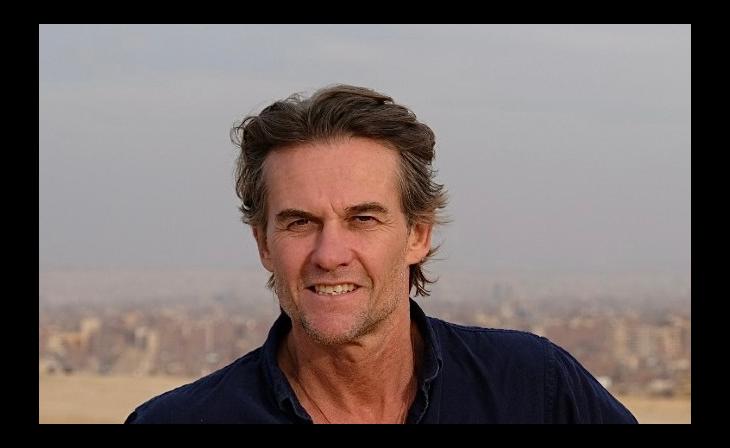
DIRECTOR, PRODUCER
Christopher Sharp was born in Uganda and has a deep appreciation for the country’s people, culture and extraordinary natural beauty. He spent his early working life as a film editor in London and more recently has revisited the profession as director of ‘Bobi Wine: The People’s President’.
He met Bobi and Barbie in 2017 and was inspired by their courage. Christopher believed in their extraordinary capacity to enact change, and instantly knew that their enormous sacrifice and resilience needed to be documented.
He worked closely with a number of talented individuals, including Editor Paul Carlin, as well as acclaimed Producer John Battsek, Co-Director Moses Bwayo, and other inspirational cinematographers. Collectively they have made a film which he hopes gives courage to all those who struggle under oppressive regimes.
MOSES BWAYO
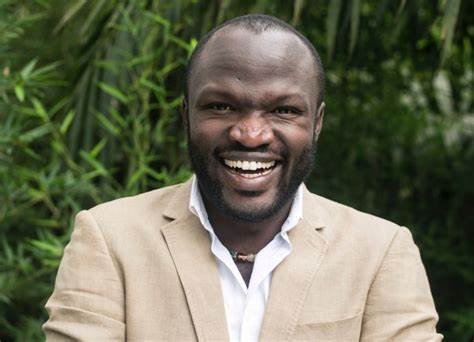
DIRECTOR, DIRECTOR OF PHOTOGRAPHY
Moses Bwayo is a Los Angeles-based filmmaker known for shooting and co-directing the award-winning feature documentary “Bobi Wine: The People’s President” (2023). Born in the village of Bududa on the slopes of Mount Elgon in eastern Uganda, Moses was introduced to filmmaking by peeking through cracks in the walls of local kibandas, bootleg movie theatres housed in wooden shacks. Wrapt in the exciting camerawork and storytelling of Hollywood’s martial arts films, Moses immediately fell in love with cinema.
At 19, he moved to the capital of Uganda, got a job as a portrait photographer, and began studying at Kampala University. In 2013, he graduated with honors with his Bachelor of Arts in journalism and mass communication. Moses went on to earn a postgraduate diploma at Kampala Film School, the nation’s top film and television conservatory, and started working as a production sound recordist and cinematographer.
His life changed when he met Oscar®-nominated director Mira Nair, who was facilitating a workshop for aspiring filmmakers at her Maisha Film Labs. He was chosen as a boom operator on Nair’s short documentary “A Fork, a Spoon and a Knight” (2014). Subsequently, Nair took Moses under her wing and mentored him for two years, during which he performed sundry jobs for Disney’s “Queen of Katwe” (2016), travelling to the United States for the first time for the final mix with Nair in New York.
In 2016, Moses started his own production company in Kampala, Jajja Productions, where he oversaw production and post-production services on various commercial, documentary, and feature films. Moses’ reputation as a courageous verité cinematographer and local fixer began to grow, shooting for ABC, BBC, and VICE News for their Uganda-based productions.
In late 2017 His life changed again when he began work on the feature documentary “Bobi Wine: The People’s President.” Working closely with co-director and producer Christopher, Moses spent five harrowing years following Bobi Wine, a pop star turned politician who ran for president opposing Yoweri Museveni, a dictator who has been in power since 1986. During the production, Moses was arrested, imprisoned, and shot in the face at close range while filming. Two-time Oscar winner John Battsek also produced the film. With mounting threats to him and his family for making the film, Moses fled Uganda to the United States.
“Bobi Wine: The People’s President” premiered to a 10-minute standing ovation at the 2022 Venice Film Festival in September 2022, where it sold to National Geographic before making its U.S. premiere at the 2022 Telluride Film Festival. The film won the Audience Award for Best Documentary Feature at the 2022 Hamptons International Film Festival.
JOHN BATTSEK
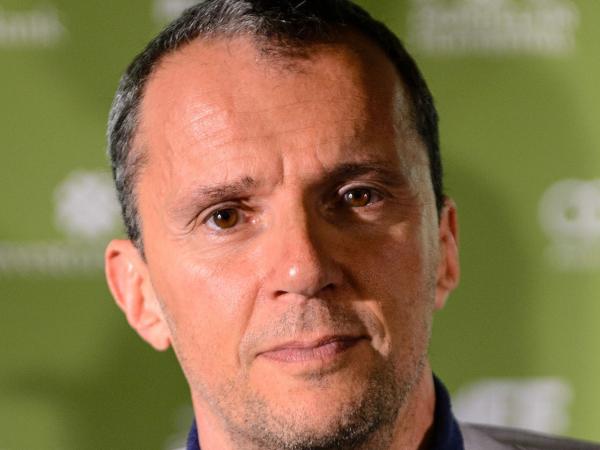
PRODUCER
John Battsek is one of the most successful producers in feature documentary filmmaking. Starting with Academy Award winning One Day in September, which John conceived of and produced, he has since been responsible for some of the most acclaimed documentaries in recent years.
John’s most notable credits include Academy Award & BAFTA-winning Searching For Sugar Man, Academy Award-nominated Restrepo and Winter On Fire, and Emmy-winning Manhunt: The Story Of The Hunt For Bin Laden, The Tillman Story and Forever Pure. John served as producer on Grammy-nominee Eric Clapton: Life In 12 Bars and the BAFTA nominated & Peabody winning Listen to Me Marlon. John also served as Executive Producer on the BAFTA Award winning The Imposter and Hillsborough.
In 2020, John launched his new production company Ventureland with long-time PrettyBird collaborators Kerstin Emhoff, Ali Brown and Paul Hunter. His most recent credits include Emmy Award winning The Rescue (National Geographic), double Emmy winning Rising Phoenix (Netflix), critically acclaimed biopics Sir Alex Ferguson: Never Give In, and Lady Boss: The Jackie Collins Story. In 2022 John served as producer on Mary McCartney’s directorial debut, If These Walls Could Sing, the story of London’s iconic Abbey Road recording studio, which premiered at Telluride 2022 and was released on Disney+.
Most recently, John produced the freediving documentary The Deepest Breath which premiered at Sundance 2023 and will be released by Netflix later this year. John also produced Alex Gibney’s portrait of former tennis legend Boris Becker (Apple TV+) and a three-part series on David Beckham directed by Fisher Stevens for Netflix.
Africa
Paul Biya major challenger dies at 81
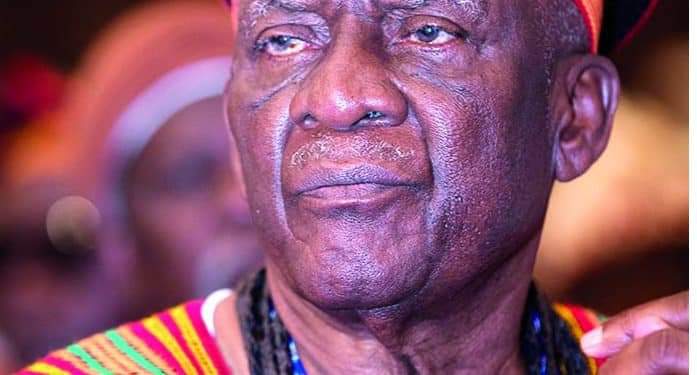
Veteran politician Ni John Fru, the head of Cameroon opposition has died aged 81 according to local press reports.
Ni has been the chairman of the Social Democratic Front (SDF) which is challenging Paul Biya’s 4 decade rule.
Mr. Ni according to sources had just returned to Cameroon three days ago, from Switzerland, where he was receiving treatment from a protracted illness.
-
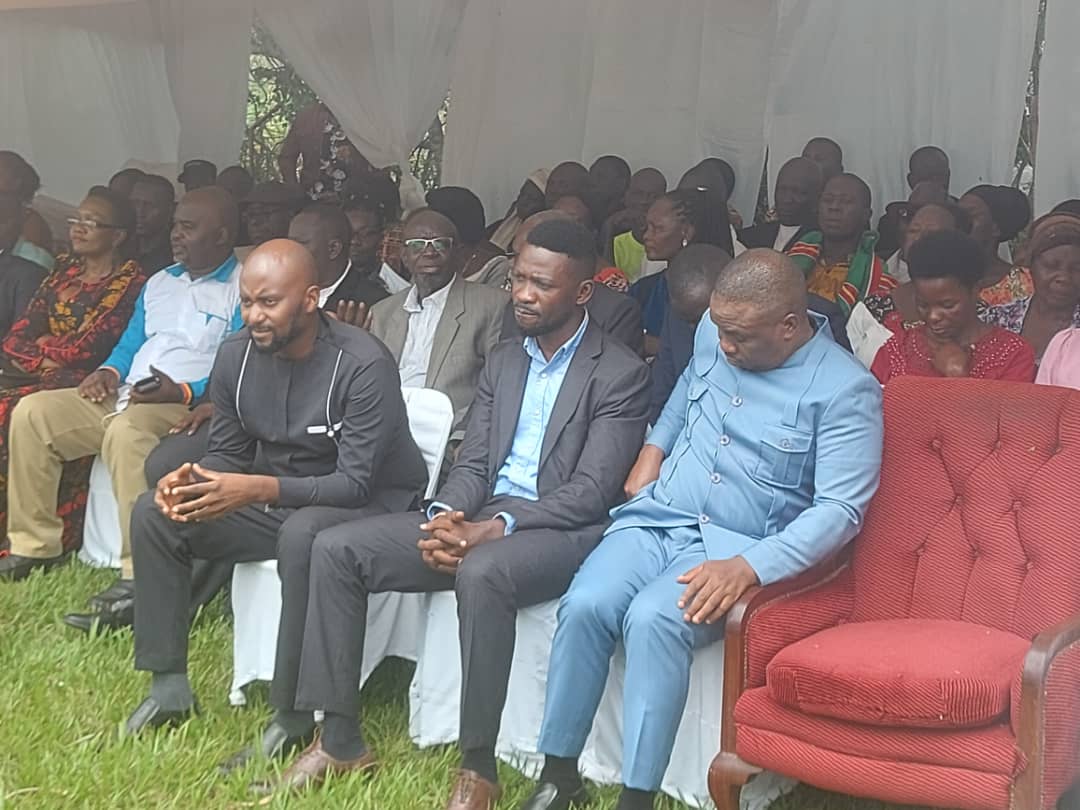
 News2 years ago
News2 years agoPresident Bobi attends burial of wife to ex LOP Oguttu
-
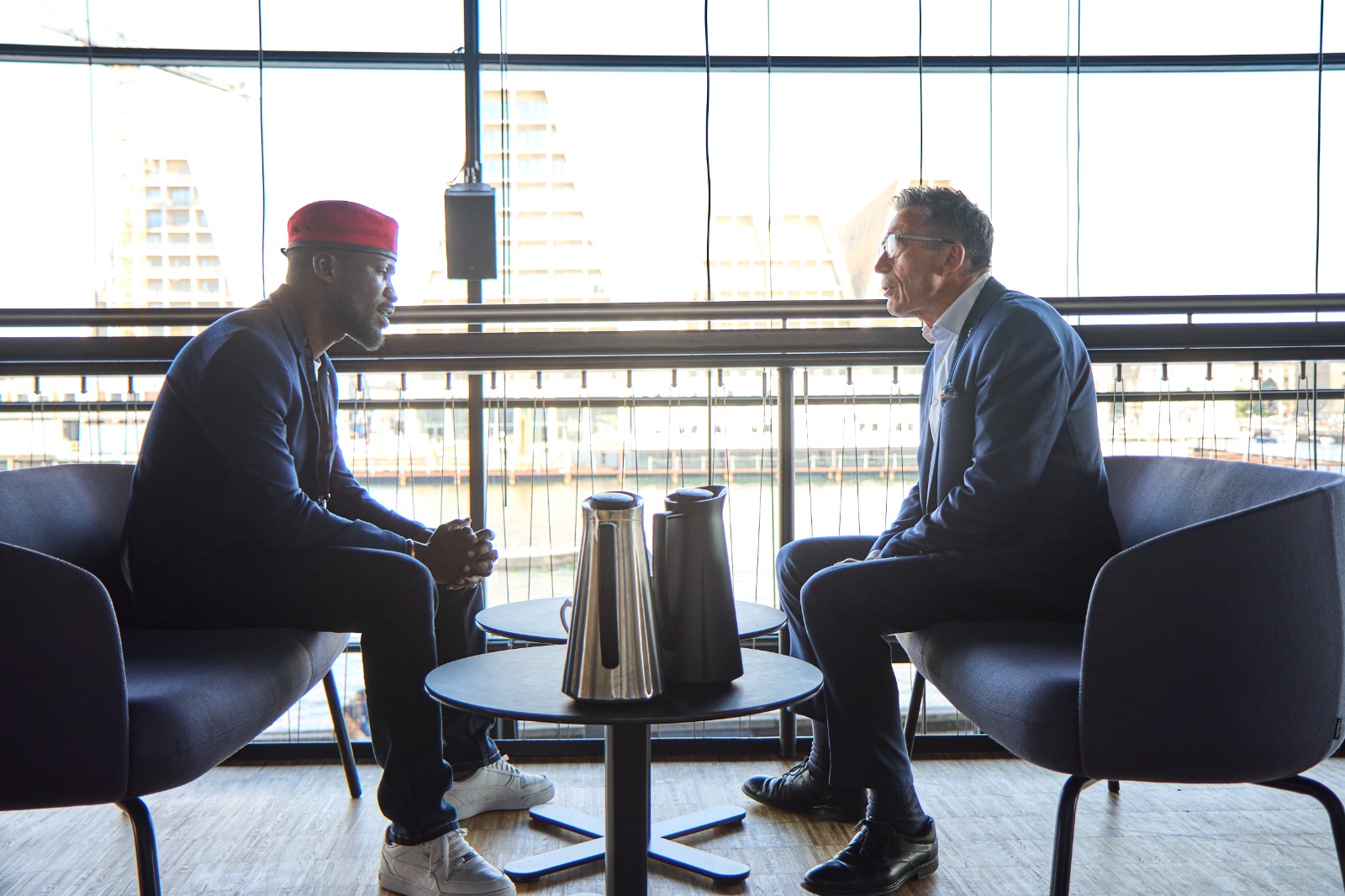
 News2 years ago
News2 years agoBobi meets ex NATO boss, discuss key issues
-
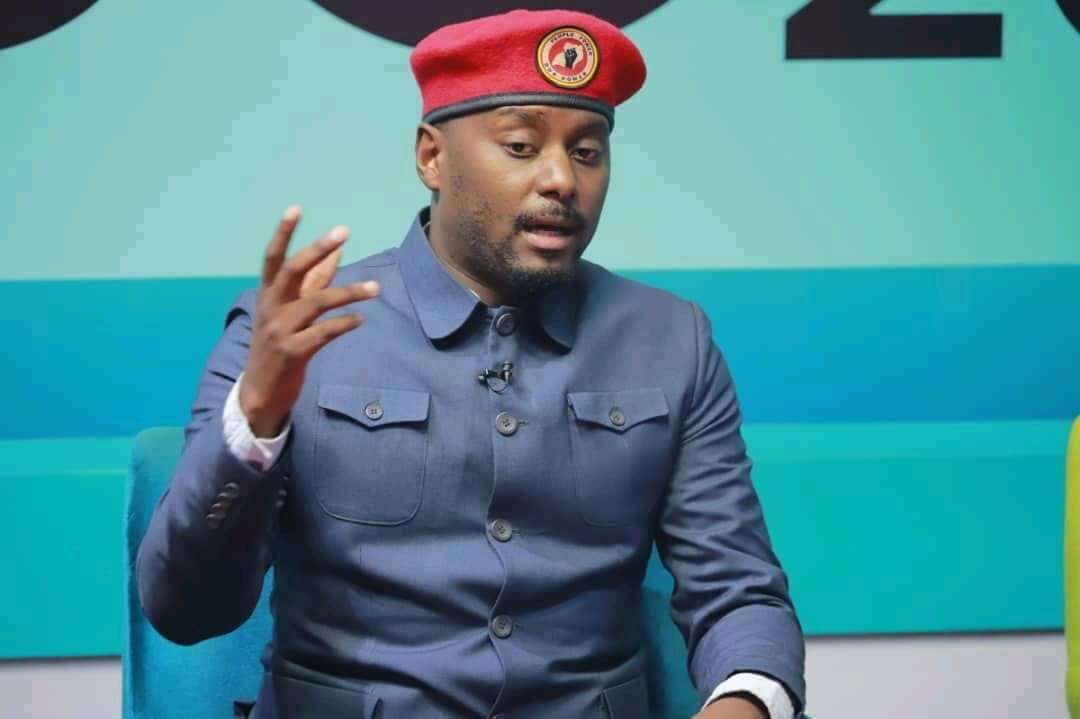
 Uganda3 years ago
Uganda3 years agoThis is why dictator M7 throws “Small victories” to the opposition
-
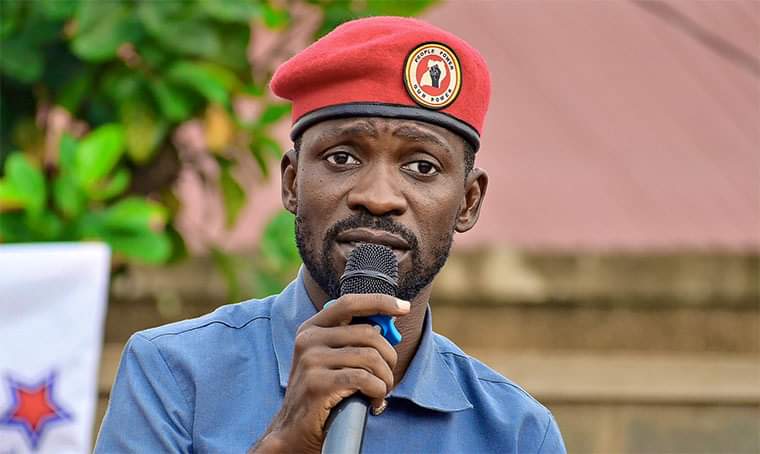
 News2 years ago
News2 years agoEXCLUSIVE: A recap of Bobi Wine interview with BBS
-
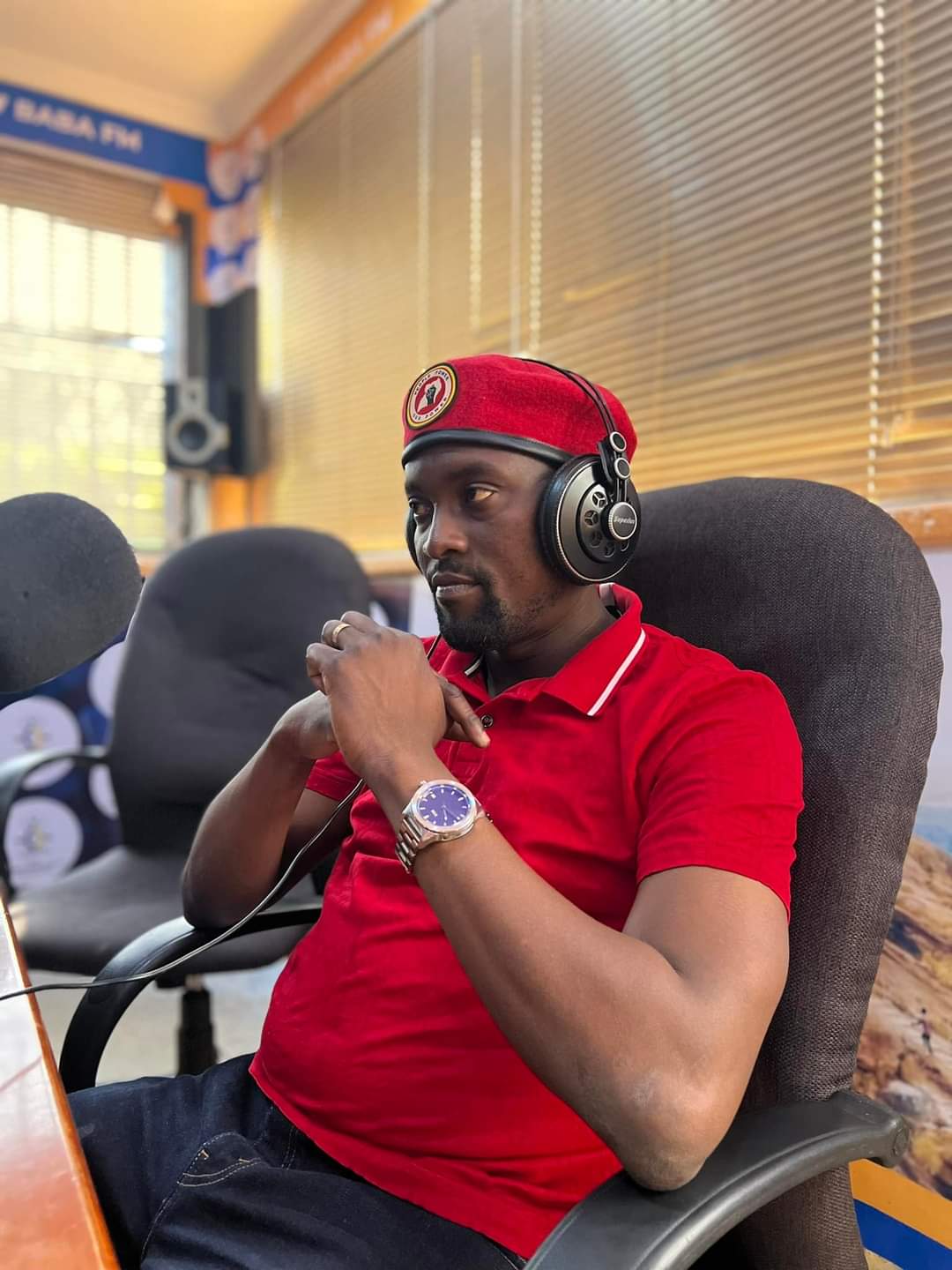
 Exclusive2 years ago
Exclusive2 years agoNUP Deputy Spokesperson Waiswa celebrates birthday in style
-
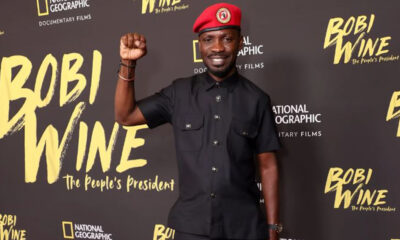
 Exclusive1 year ago
Exclusive1 year agoBobi Wine The People’s President Full Documentary







